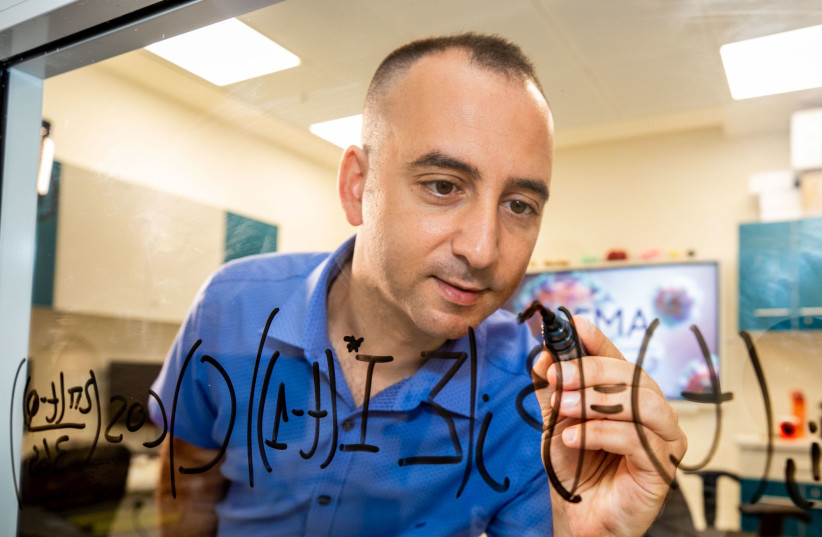In a first-of-its-kind study, researchers at Tel Aviv University who equipped 5,000 Israelis with smartwatches and monitored their physiological parameters over two years, found that the COVID-19 booster vaccine is safe.
Of those monitored who were not in the control group, 2,038 received the booster dose, allowing the researchers to objectively compare measures before and after the participants took the vaccine and confirm its safety.
The most surprising finding was that the watches were more sensitive than the people they were monitoring. Many participants reported fatigue, headache and other minor side effects after receiving the vaccine, and after two or three days reported that they felt normal and well.
“In contrast, from examining their watches, we saw distinct changes in heart rate that continued for several more days. There were also vaccinated participants who did not report any side effects at all and yet definitely experienced physiological changes, based on data from their smartwatches,” reported doctoral student Matan Yechezkel, who worked under the supervision of Prof. Dan Yamin, head of the Laboratory for Epidemic Research. “In other words, we learned that the smartwatches were more sensitive to changes in general feeling than the participants themselves.”
Safety checks on the booster

In addition, in collaboration with the Kahn Sagol Maccabi Research and Innovation Center (KSM – the research and innovation institute of Maccabi Health Services), the researchers examined the safety of the booster by analyzing the medical files of 250,000 members of Maccabi Health Services without identifying details and with the approval of the Helsinki Committee on Human Experimentation.
From the analysis of this large amount of data, the researchers were able to evaluate the safety of the vaccines from three perspectives: subjectively by the participant reports; objectively by what the watch detects and clinically; and what the doctor diagnosed.
The research was carried out by and led in collaboration with Prof. Erez Shmueli, head of the Big Data Laboratory, all from the Fleischman Faculty of Engineering at Tel Aviv University. Other collaborators were Dr. Tal Patalon (KSM director) and Dr. Sivan Gazit (KSM deputy director), as well as TAU’s Dr. Amichai Painsky and Merav Mofaz. The results of the research were published in the prestigious journal Lancet Respiratory Medicine under the title “Safety of the fourth COVID-19 BNT162b2 mRNA (second booster) vaccine: a prospective and retrospective cohort study.”
Since the absence of sufficient vaccine safety information has been shown to be one of the key contributors to vaccine hesitancy, the team “wanted to test the safety of booster vaccines against the coronavirus,” recalled Yamin. “The smartwatches were used to monitor a number of parameters such as heart rate, variation in heart activity, quality of sleep, number of daily steps taken and more. In addition, the participants were asked to fill out daily questionnaires about their health status in a customized application that we developed.”
Comparing and contrasting using smartwatch data
Then the files of a quarter of a million Maccabi Health Services members were analyzed. Since the medical file contains the date the booster vaccine was given, researchers were able to compare the condition of the vaccinated patient with his/her baseline condition from 42 days before receiving the vaccine to the condition of 42 days after receiving the vaccine.
“We saw clear and significant changes after administration of the vaccine, such as an increase in heart rate compared to the pulse rate measured before vaccination,” said Yamin, “and then we saw a return to the participant’s baseline – the pulse levels after vaccination returned to their previous levels after six days. Hence, our study confirms the safety of the vaccine. The research also allowed us to compare subjective and objective indicators and medical diagnosis of the same participant who received the first booster and a few months later the second booster. We found no difference in the physiological response recorded by the smart watches or that reported by the participant in the app.”
In the medical literature, 25 unusual side effects attributed to the vaccine were reported, and the researchers carefully looked for rare cases of inflammation of the heart muscle (myocarditis) and pericarditis. They found no increase in serious incidents of any kind associated with vaccination in the Maccabi members.
“If the watch reports any minor changes in the muscles and the participant reports only significant changes he feels, the medical file tells us about unusual events diagnosed by the doctors as well as hospitalizations that may be related to vaccinations, with an emphasis on cardiac events,” concluded Yamin. “The results of the study have far-reaching implications regarding objective testing of vaccine safety in the future.”
